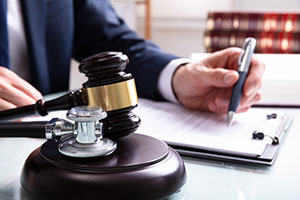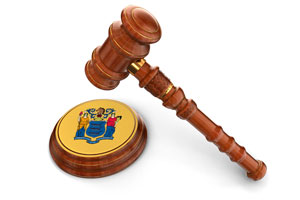Courts and rule-makers have categorized expert witnesses in ways that can be confusing. Placing an expert witness into the correct category can make the difference between a lawyer’s ability to use an expert at trial and a judge’s decision to exclude the expert’s testimony.
Differing terminology used by state and federal courts contributes to the confusion. Federal courts draw a distinction between retained and non-retained experts. State courts sometimes refer to a non-retained expert as a hybrid witness. In both state and federal courts, the distinction between a fact witness and an expert witness is not always clear. The procedural rules that govern disclosure and expert reports depend on classifying the witness correctly.
Fact Witnesses
Courts generally agree that a fact witness is someone who bases testimony on observation and personal knowledge. Fact witnesses testify about things they perceived. “I saw the blue car cross the centerline and collide with the red car” is fact testimony.
Fact testimony is usually given by lay witnesses, but witnesses who have expertise that does not inform their testimony can also give fact testimony. Whether the witness has specialized knowledge does not affect his or her status as a fact witness. A chemist or an economist who testifies about a car crossing a centerline and causing a collision does not become an expert witness simply because she has an advanced degree.
A jury needs no specialized knowledge to understand the testimony of a fact witness. Since fact witnesses are typically testifying about things that they perceived, fact witnesses do not usually give opinions. An exception to that rule allows lay witnesses to give rational opinions based on common experience if the opinion would help the jury understand the evidence. “He seemed angry,” an opinion based on attitude and tone of voice, is an example of a lay opinion that some courts regard as admissible if the person’s anger is relevant to the case.
Expert Witnesses
An expert witness offers opinions based on the expert’s specialized knowledge, training, or experience rather than the expert’s own perception of facts. An accident reconstruction expert who did not see the blue car cross the centerline and crash into the red car can use the location of debris, gouges in pavement, vehicle damage, and the final resting places of the two vehicles to form the opinion that the blue car crossed the centerline.
Unlike lay witnesses, experts can express opinions if the opinions would help the jury decide an issue that is relevant to the case. Every jurisdiction requires the expert to be qualified to render an opinion. Whether a qualified expert’s relevant testimony is admissible depends upon whether it satisfies the controlling standard in state or federal court. The Daubert standard applies in federal court, while states typically rely on their own version of the Daubert standard, the Frye standard, or a hybrid standard.
The line between an expert and a fact witness can be muddied when an expert discusses facts that are not within the common knowledge of lay jurors. For example, a treating physician will often explain the injuries for which an accident victim was treated. A physician who discusses the significance of a ruptured spleen will probably explain the function of an organ that most people don’t understand.
Courts typically classify treating physicians as fact witnesses, even when their explanation of the facts depends on their specialized knowledge. When a treating physician offers a prognosis, however, the physician is offering an opinion, not stating facts. How to classify a treating physician who offers opinions about the need for future healthcare is a tricky question.
Retained vs. Non-Retained Experts
In federal court, a treating physician who will offer opinions is usually classified as a non-retained expert. A non-retained expert is not hired for the specific purpose of giving expert testimony. A treating physician is hired to treat a patient. Asking that physician to testify about opinions that the physician formed in the course of treating the patient does not make the physician a retained expert because the physician was not retained for that purpose.
As one court explained, a physician is only “retained” if the physician’s testimony is not based on opinions that the physician formed while treating the patient. Thus, a treating physician who expresses an opinion about causation that is based on the physician’s observations has not been retained for the purpose of litigation. On the other hand, a physician who is retained to review medical reports and other evidence regarding a patient the physician did not treat is classified as a retained expert.
While the distinction between retained and non-retained experts usually arises when a treating physician offers an opinion, it can apply to other experts, as well. In the case linked above, the court concluded that the defendant’s former CFO, although hired and paid to offer expert opinions, was a non-retained expert because his testimony was limited to opinions that were based on observations he made while employed by the defendant.
Whether a witness is retained or non-retained is not always clear. For example, when a physician saw a patient only once, three years after an accident, assessed his injuries, and prepared a treatment plan, the absence of any ongoing treatment convinced a court that the physician was retained for the purpose of litigation. The physician offered an opinion as to whether the plaintiff’s injuries were caused in the car accident that was the subject of the litigation or in an earlier car accident. Since the physician formed his opinion by reviewing x-rays taken after the first accident, at a time when the physician was not treating the patient, the physician did not base his causation opinion on observations made in the course of treatment. He was therefore a retained expert.
Why Does the Designation Matter?
In federal court, the Rules of Civil Procedure require disclosure of all testifying experts, whether they are retained or non-retained. The rules governing disclosure of expert opinions, however, are quite different.
Rule 26 requires a retained expert to prepare a written report that includes all opinions the witness will express at trial, the reasons that underlie those opinions, and the facts or data that the witness considered in forming them. Federal courts often bar the testimony of retained experts who write insufficient reports.
Rule 26 does not require a non-retained expert to prepare a report. Instead, the lawyer who plans to call the expert as a witness must disclose the expert’s identity as well as the subject matter of the witness’ testimony and a summary of the facts and opinions to which the expert is expected to testify.
State courts that do not pattern their disclosure requirements on Rule 26 may impose different obligations. State courts sometimes refer to a non-retained expert as a hybrid witness. Whether retained and non-retained (hybrid) witnesses and their opinions must be disclosed, and whether the disclosure requirements differ, is a question lawyers can only answer by reviewing the state’s rules of civil procedure, relevant caselaw, and the court’s scheduling order.









